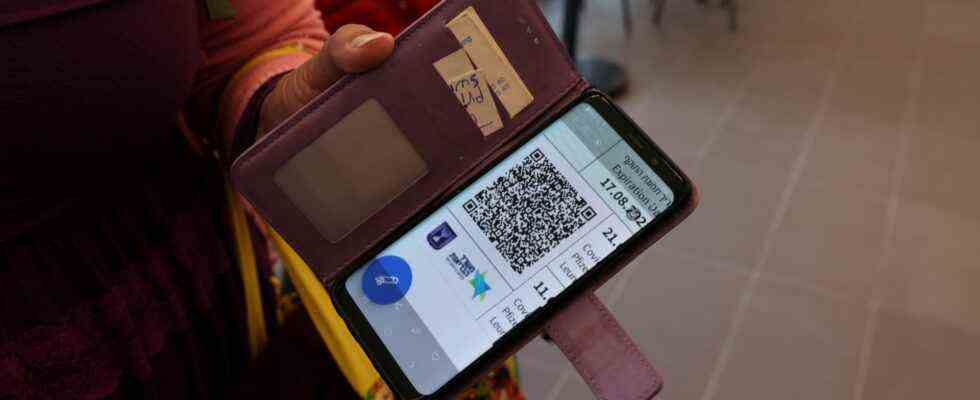Status: 07.02.2022 03:23
The corona incidence in Israel has recently fallen somewhat, but is still extremely high in international comparison. Nevertheless, the “green pass” as an access permit is being abolished in many areas – which has met with criticism.
The Hadassah Ein Kerem Hospital in Jerusalem operates one of the largest corona wards in Israel. The employees now have experience in dealing with the virus. But the exhaustion after two years of the pandemic is great. This is also due to the fact that there are now more seriously ill people in Israel than at any time since the beginning of the pandemic. There are more than 1250, a very high number for little Israel.
“It’s not like it was at the beginning of the pandemic,” Yoram Weiss, director of the hospital, told Reuters. “Back then, everyone still had energy. Today they are very tired.” Some surgical departments have now been closed and the number of operations reduced. “In the internal medicine departments, we have reduced the number of patients so that more staff are available for the Covid patients.”
Incidence remains extremely high
Israel’s hospitals are in crisis mode. The seven-day incidence, while declining, remains one of the highest in the world at over 4,500. 300 people died within a week from or with Covid-19. A value that is about twice as high as in Germany, although significantly fewer people live in Israel.
So the situation in Israel is tense. Nevertheless, the government has decided to abolish the so-called Green Passport in many areas. So far, it was something like the ticket to public life. For museums, concerts and restaurants. The digital ID card was issued to those who had been vaccinated, those who had recovered and those who had been tested – with different expiration dates.
Pass suggests false security
Hagai Levine is an epidemiologist at the Hebrew University in Jerusalem. He can well understand the fact that the green passports are largely being abolished: with the Omikron variant, people unfortunately also get infected after three and – according to the first data – after four doses of vaccine. Compared to other variants, vaccinations do not provide sufficient protection against transmission. That is the reason to rely less on the Green Pass.”
Evidence is only retained in so-called high-risk areas. In retirement and nursing homes, for example, or at large wedding celebrations. In restaurants, cinemas and theaters, however, the motto is: Everyone is allowed in. Without proof of vaccination. And: untested. A 2G Plus model is deliberately not being introduced in Israel.
“Can we continue to force people to get tested all the time? No,” says Levine. “Public health is about people making their own decisions. If someone is a high-risk patient and they still want to go to the theater, okay, they should be allowed to go. We don’t underestimate the risks. We just believe that the public is responsible for himself.”
Doctors see no reason for the all-clear
The doctor says that there is now corona fatigue among medical staff in Israel. A longing that the Corona war is finally over. But that’s not the case, says the epidemiologist. “The government must make it clear to the public that the situation is still dangerous. That people have to be careful.”
Israel continues to rely on vaccinations. Offers a fourth dose to all Israelis over 60 and younger with pre-existing medical conditions. Also to prevent serious gradients. Some experts have criticized this point. They don’t think it’s a good thing that the Green Passport is largely being abolished. Because the incentive to get vaccinated could decrease. The vaccination rate at the supposed vaccination world champion Israel is actually lower than in many European countries.

